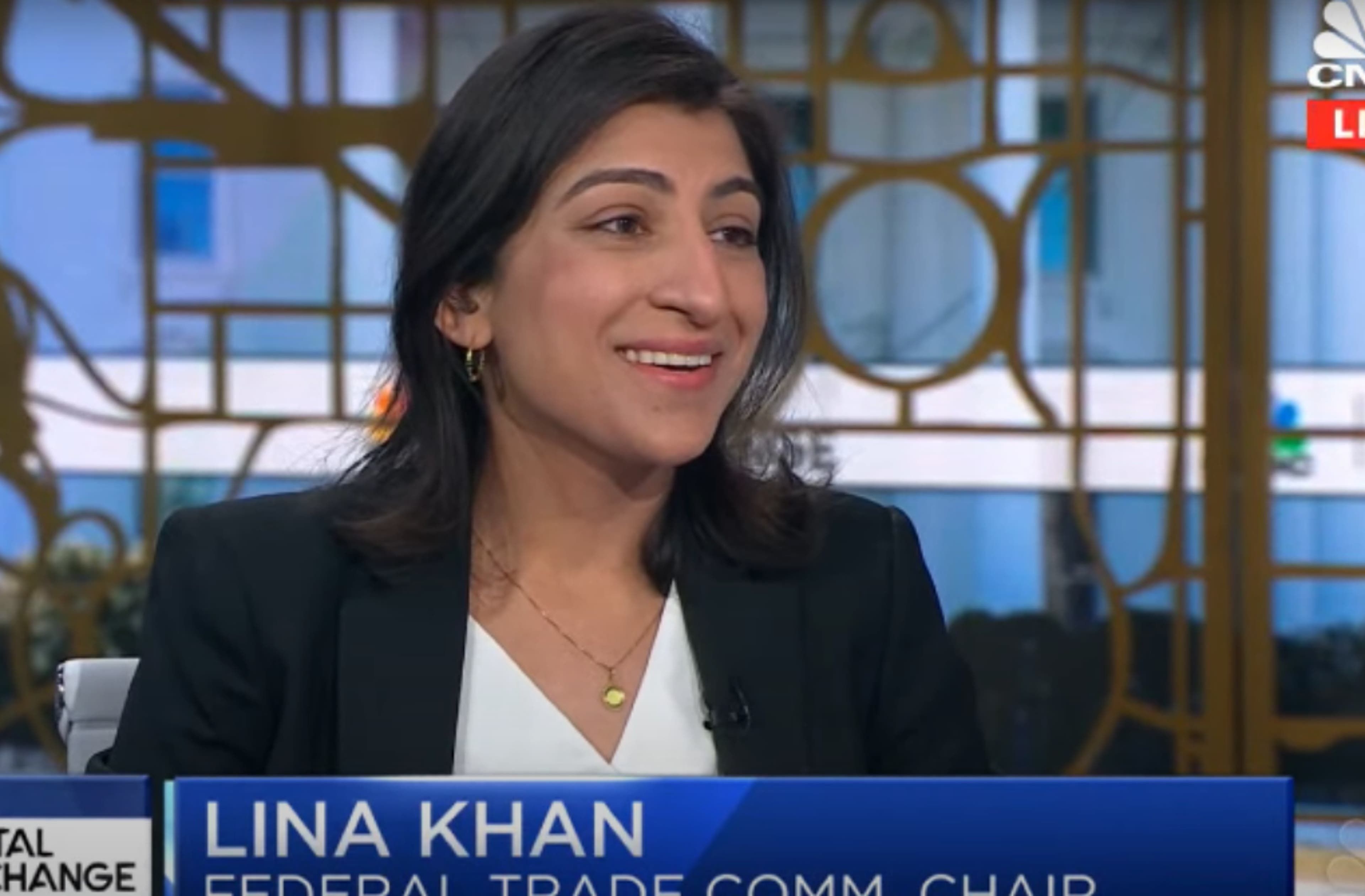U.S. Federal Trade Commission Chair Lina Khan has shown big aspirations while making some forward-thinking moves for the regulation of Big Tech firms during her first year at the helm. What remains to be seen is whether Khan's plans to hold technology companies accountable in the areas of privacy and antitrust will be executed as boldly as they were drawn up.
Khan sought to explain the commission's actions to date and her overall vision in an appearance on CNBC's "Capital Exchange" Wednesday, her first television appearance since being appointed FTC chair in June 2021. Khan's comments focused mostly on current antitrust and competition issues, with the appearance coming a day after the FTC's joint announcement with the Department of Justice on intentions to update guidelines for mergers and acquisitions.
However, Khan did shed perspective on themes related to privacy: namely the growing streams of personal data collection and the power they are creating for Big Tech.
"The types of capabilities we've seen these firms develop really pose difficult questions about the types of information they have access to, which implicates all sorts of data privacy and security questions in addition to competition." Khan said. "It's certainly a question that needs to be top of mind. … There's a much bigger national conversation. Lawmakers are thinking about these issues with a series of bills proposed to address these problems, and I think that'll be the right venue for these discussions."
The upcoming revisions to merger guidelines for digital markets will involve better identifying the role data plays in consummating a given deal. Khan said data is a key consideration after seeing "the ways in which data aggregation and access to commercially sensitive data of other firms can give a particular edge and ensure dominance survives some of these transitions."
Additionally, Khan specifically mentioned "privacy degradation" as another factor that will be considered as far as how a merger could harm consumers beyond price of a service.
"There's a deep conversation right now that falls in the FTC's wheelhouse around data privacy and security instances where firms were able to (renegotiate) on their commitments," Khan said. "They entered the market or made certain acquisitions of firms that were more privacy protective and then (renegotiated) so consumers are locked in and suddenly have to surrender more data or be trapped on a greater set of websites. It really speaks to this idea users are not exercising free choice or consenting, but really feel locked in or coerced."
While she mentioned the ball is really in Congress' court as far as laws that would best limit these bad practices, Khan and the FTC don't intend to sit idle. The commission is preparing for a robust rulemaking on privacy and artificial intelligence that will begin with an Advanced Notice of Proposed Rulemaking in February. Khan didn't speak directly on the potential rulemaking, but she did discuss whether the commission or a new more tailored regulator — like the one proposed in a bill by U.S. Sen. Kirsten Gillibrand, D-N.Y., in June 2021 — should enforce against privacy violations.
"It's ultimately a decision for Congress to make, but we see our job as doing everything we can with the tools we currently have," Khan said. "The FTC has developed significant expertise on these issues. If we were able to secure additional resources and money, I think we'd have an opportunity to really go hard here. Standing up new agencies can take a lot of work and there are frictions there that are important to think about too."
Khan did not shy away from further noting a lack of sufficient resourcing, saying the commission is "severely under-resourced." The lack of resources is a concern U.S. Congress can address and have attempted to rectify with $500 million in funding proposed in the Build Back Better Act. That bill remains under Senate consideration, but reportedly could undergo further amending that may see the FTC funding removed if the bill does pass.
"Our head count is around two-thirds of what it was in the 1980s with resources staying more or less stable. In real terms, they've actually declined at various points over the last decade," Khan said, adding the commission faces "very real tradeoffs" as far as having to pick and choose which companies to investigate. She also explained deterrence is a chief consideration that comes into play when choosing which companies or actions require reprimand, especially when any enforcement can potentially create a trickledown effect or a "market-wide impact."
"We think about instances in which certain types of unlawful business practices have an upstream source, like certain types of intermediaries or companies facilitating these bad practices" Khan said. "Really trying to nip it at the source can be one way we try channel resources to be more efficient."

